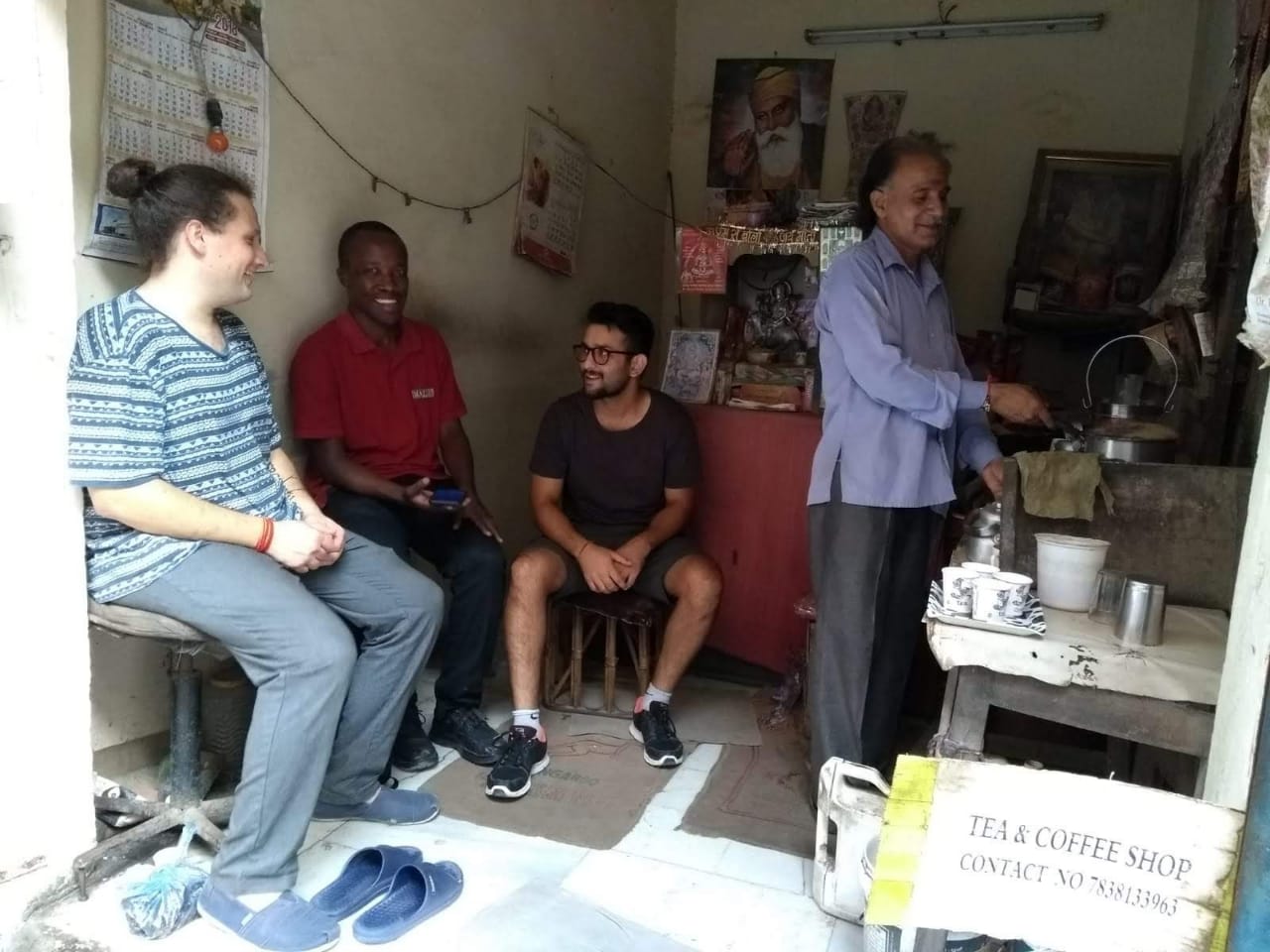Deep down, I don’t know exactly what I am doing with my life or where the arrow of time is taking me. Even then, I care too much about others’ opinions in regards to who I am or what I do. As an attempt to alleviate this problem, I have devised certain tests. On some days, I wear two different socks. As you will reckon, this is a strange thing to do. Everyone wears a pair of similar socks. So, wearing different socks is a reminder for me to not care about how people do things, what is considered normal or what kind of opinion they hold about me. This also helps in breaking set mental patterns that may inhibit creativity.
Another test, which I also try, is conspicuously wearing sweaters upside, even in church. This helps accomplish the same aim, as above by socks. These techniques may seem simple but they actually help fortify the mind against the real life episodes which demand that you take certain risks or decisions that may prove embarrassing or worrisome.
I am not the first, nor the last to consider such measures. Two millennia ago, Seneca, the great Roman philosopher-a man of timeless wisdom, gave us a strategy for protecting ourselves from misfortune and fear. He wrote a letter to his friend, Lucilius Jr, advising him to,
“Set aside a certain number of days, during which you shall be content with the scantiest and cheapest fare, with coarse and rough dress, saying to yourself the while: “Is this the condition that I feared?” It is precisely in times of immunity from care that the soul should toughen itself beforehand for occasions of greater stress, and it is while Fortune is kind that it should fortify itself against her violence. In days of peace the soldier performs maneuvers, throws up earthworks with no enemy in sight, and wearies himself by gratuitous toil, in order that he may be equal to unavoidable toil. If you would not have a man flinch when the crisis comes, train him before it comes.”
[……]
..Let the pallet be a real one, and the coarse cloak; let the bread be hard and grimy. Endure all this for three or four days at a time, sometimes for more, so that it may be a test of yourself instead of a mere hobby. Then, I assure you, my dear Lucilius, you will leap for joy when filled with a pennyworth of food, and you will understand that a man’s peace of mind does not depend upon Fortune; for, even when angry she grants enough for our needs.”
Seneca wrote this letter in the month of December, in a bid to offer his friend a recipe for moral resilience and constancy of mind. From Romans, December was a season of intemperate festivities.
This advice may look pretentious and mockery to the poor, but Seneca tempers it with a reality check of the privilege-for it is, after all, a luxury of the privileged to practice this as an occasional elective exercise in character-building rather than a trying daily circumstance of life. He continues,
“There is no reason, however, why you should think that you are doing anything great; for you will merely be doing what many thousands of slaves and many thousands of poor men are doing every day. But you may credit yourself with this item, — that you will not be doing it under compulsion, and that it will be as easy for you to endure it permanently as to make the experiment from time to time. Let us practice our strokes on the “dummy”; let us become intimate with poverty, so that Fortune may not catch us off our guard. We shall be rich with all the more comfort, if we once learn how far poverty is from being a burden.
[…]
So begin, my dear Lucilius, to … set apart certain days on which you shall withdraw from your business and make yourself at home with the scantiest fare. Establish business relations with poverty.”
Even better, if you aim to beat social anxiety or want to increase confidence, you may consider trying “comfort zone challenges”. This for example, may involve you lying on the floor of a, say bank or Java or any other public place. Tim Ferriss, the bestselling author and entrepreneur, recommends this. You may ask, what are the benefits?
Well, these challenges may help build your confidence and also convince you that what might seem impossible at first is actually fully achievable. As well, they will help increase your risk tolerance. So, when it comes to issues that really matter, and people think you are crazy, you will be readily prepared.
Other comfort challenges I have tried out include deliberately interacting with strangers. I have on many occasions chosen to go outings with people who are complete strangers. This at first feels awkward but I eventually get to beat my shyness and talk. I have made many friends this way. For example, months ago, I flew to New Delhi and chose to stay with two Indian young men in a Delhi neighbourhood that was completely “Indian”. The experience was out of this world. I have tried this several times and I now rarely feel the social awkwardness or anxiety that I used to have.
Many other “comfort zone challenges” that one may try include:
- Volunteering
- Eating out a lone
- Attending events or seminars

